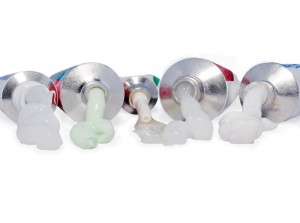 For months, we have been talking about the increasing concerns over testosterone replacement therapy and the accompanying potential side effects, a topic that was buried under a rug for years because no one ever told us about the risks. In light of all the recent concerns, the FDA has now stepped in and asked two of its advisory committees to evaluate the potential health risks.
For months, we have been talking about the increasing concerns over testosterone replacement therapy and the accompanying potential side effects, a topic that was buried under a rug for years because no one ever told us about the risks. In light of all the recent concerns, the FDA has now stepped in and asked two of its advisory committees to evaluate the potential health risks.
A joint meeting of the FDA’s Bone, Reproductive and Urologic Drugs Advisory Committee and the Drug Safety and Risk Management Advisory Committee has been scheduled for mid-September. The hearing, announced just days after the Canadian drug regulators announced that they had completed their own review (the FDA always seems to be a step behind), found strong links between testosterone drugs and heart problems. It was determined that some of the cardiovascular problems disappeared after the use of the testosterone drugs was stopped, only to return once the product was used again. Sometimes science can be real complicated. But our intuition on this holds scientific water: if you stop taking something, your problem goes away. But if it reappears when you use it again, there is likely to be a connection.
The FDA launched its investigation in January after several studies suggested that men using the Low T treatments may face an increased risk of heart attacks, strokes, and sudden death. The FDA is looking for committees to evaluate the risks and make recommendations about the potential cardiovascular risks with the use of the popular “Low T” drugs.
What Is All of This About?
According to the research, men with signs of heart problems such as high cholesterol, plaque buildup, and artery blockage are at risk of being 30% more likely to suffer from a heart attack, stroke, or even die while undergoing Low-T Treatment. While AndroGel (Abbvie/Abbott) is one of the most popular of these treatments, they also include:
- Androderm (Actavis)
- Axirom (Eli Lilly)
- Bio-T-Gel (BioSante and Teva)
- Delatestryl (Indevus)
- Depo-Testosterone (Pharmacia & Upjohn)
- Fortesta (Endo)
- Striant (Columbia Laboratories)
- Testim (Auxilum/Glaxo)
- Testopel (Auxilium)
The gist of it is that low testosterone treatments may double the risk of heart attack for young men with heart disease as well as for men 65 years of age and older, even those who have had no heart problems. Additional research has also found that these types of medications can cause a body to hold extra body water, which can increase your risk of heart failure. Yet another concern with the product is that it can increase the risk of deep vein thrombosis (DVT) which can lead to life-threatening complications including pulmonary embolisms. This is where the body develops blood clots in the deep veins, most commonly in the legs, that can break off and travel through the body resulting in potentially life-threatening complications.
What Is Being Done About This?
Well, the committee referenced above for starters. One thing the committee could recommend would be to add black box warning to all testosterone products. A consumer watchdog group actually petitioned the FDA earlier this year to add the black box warning to all testosterone products, but was recently shot down while the FDA completes its own review.
One thing that the FDA has already done was to require new venous thrombosis label warnings on testosterone drugs warning that they could increase the risk of blood clots. On June 19th, the FDA announced that it would require new venous thrombosis label warnings on testosterone drugs that they could increase the risk of blood clots. While the original warning was specific to blood clots linked to polycythemia, the warning has since been changed from one linking the problem to polycythemia, to a more generalized VTE warning.
Who’s Using This Stuff?
While testosterone replacement therapy has only been approved to treat testosterone deficiencies caused by certain medical conditions such as hypogonadism, that hasn’t stopped the thousands and thousands of prescriptions written each year. The aggressive marketing strategy encourages men to seek prescription treatments for the natural effects of decreasing testosterone levels as they get older. The ads promise increased energy and libido, among other things. All things sounding pretty attractive to an aging man.
Do I Need A Lawyer?
If you or a loved one has suffered an injury as the result of taking testosterone supplements, you may have a claim. Reach out to discuss your concerns and have an expert review your case. Call 800-5538082 for a free consultation or reach out to us here.
 Lawsuit Information Center
Lawsuit Information Center

